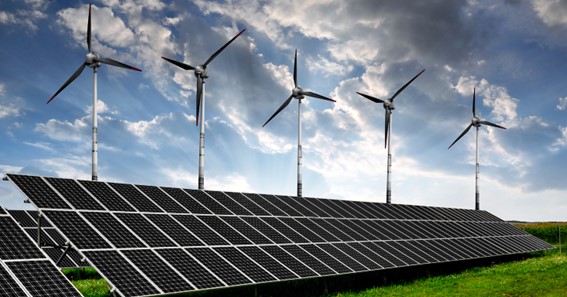Are you curious to know what is degraded energy? You have come to the right place as I am going to tell you everything about degraded energy in a very simple explanation. Without further discussion let’s begin to know what is degraded energy?
What Is Degraded Energy?
Energy is a fundamental concept in physics and plays a crucial role in our daily lives. However, not all energy is equal in terms of its usefulness or ability to perform work. When energy undergoes conversion or transformation processes, it often experiences degradation, resulting in a decrease in its quality and availability for useful work. In this blog, we will explore the concept of degraded energy, the causes behind its degradation, and its significance in various energy systems.
Defining Degraded Energy:
Degraded energy refers to energy that has undergone a conversion process and has lost its ability to perform useful work effectively. It is characterized by a decrease in quality, typically resulting in an increase in entropy, which is a measure of the energy’s disorder or randomness.
Causes Of Energy Degradation:
- Heat Dissipation: One of the primary causes of energy degradation is heat dissipation. When energy is converted from one form to another, such as in thermal power plants or combustion engines, a significant portion of the energy is lost as waste heat. This waste heat is often released into the environment, resulting in energy degradation.
- Friction And Mechanical Losses: In mechanical systems, energy conversion involves moving parts and surfaces that can experience friction and mechanical losses. These losses manifest as heat generated due to friction, vibration, or sound, leading to a decrease in the overall useful energy.
- Electrical Resistance: In electrical systems, energy can be degraded through resistance in conductive materials. When electrical current flows through a conductor, resistance converts some of the electrical energy into heat, reducing the usable energy output.
- Inefficiencies In Energy Conversion Devices: Energy conversion devices such as generators, motors, and transformers can exhibit inefficiencies that result in energy degradation. These inefficiencies can be caused by factors like electrical resistance, magnetic losses, mechanical losses, or electrical losses.
Significance Of Degraded Energy:
- Energy Efficiency: Understanding degraded energy is crucial for improving energy efficiency. By identifying and mitigating the causes of energy degradation, energy systems can be designed and optimized to minimize losses, thus increasing overall energy efficiency.
- Sustainable Energy Systems: In the context of sustainable energy, minimizing energy degradation plays a vital role. Renewable energy sources such as solar and wind power strive to maximize the conversion of available energy into useful work while minimizing losses, promoting a sustainable and clean energy future.
- Waste Heat Recovery: Recognizing the concept of degraded energy enables the exploration of waste heat recovery technologies. By capturing and utilizing waste heat generated in various industrial processes, it is possible to convert it back into useful energy, improving overall system efficiency and reducing environmental impact.
Conclusion:
Degraded energy refers to energy that has undergone conversion or transformation processes and has lost its ability to perform useful work effectively. Heat dissipation, friction, mechanical losses, electrical resistance, and inefficiencies in energy conversion devices contribute to energy degradation. Understanding degraded energy is crucial for enhancing energy efficiency, promoting sustainable energy systems, and exploring waste heat recovery technologies. By addressing the causes of energy degradation, we can strive to optimize energy systems, minimize losses, and utilize available energy resources more effectively, contributing to a more sustainable and efficient energy landscape.
FAQ
Which Energy Is Degraded Energy?
Degraded energy is thermal energy that is released into the surrounding environment after any process. Once released into the surroundings, this heat energy is completely useless for energy production and is considered ‘dead’ or ‘degraded energy’.
What Is An Example Of Energy Degradation?
Two examples are as follows: A large part of electrical energy is wasted in the form of heated energy when electrical appliances run off electricity. A large part of heat energy from the fuel is given out when food is cooked over fire. The liberated energy is of no use, instead causes pollution.
What Is The Most Degraded Form Of Energy?
The most common degraded form of energy is heat. Energy exists in many forms, which are heat energy, light energy, gravitational energy and mechanical energy, sound energy, chemical energy, atomic energy, electrical energy, etc.
What Is The Principal Of Degradation Of Energy?
The first law of thermodynamics says that the total quantity of energy in the universe remains constant. This is the principle of the conservation of energy. The second law of thermodynamics states that the quality of this energy is degraded irreversibly. This is the principle of the degradation of energy.
I Have Covered All The Following Queries And Topics In The Above Article
What Is Degraded Energy?
What Is Degraded Energy In Physics
Daily Life
What Is Degraded Energy In Physics
Give Four Examples Of Energy Degradation
Degraded Energy Examples
Example Of Degradation Of Energy In Daily Life
Law Of Degradation Of Energy
Renewable Energy
What Is Degraded Energy
Why is energy degraded
What is degraded energy?



